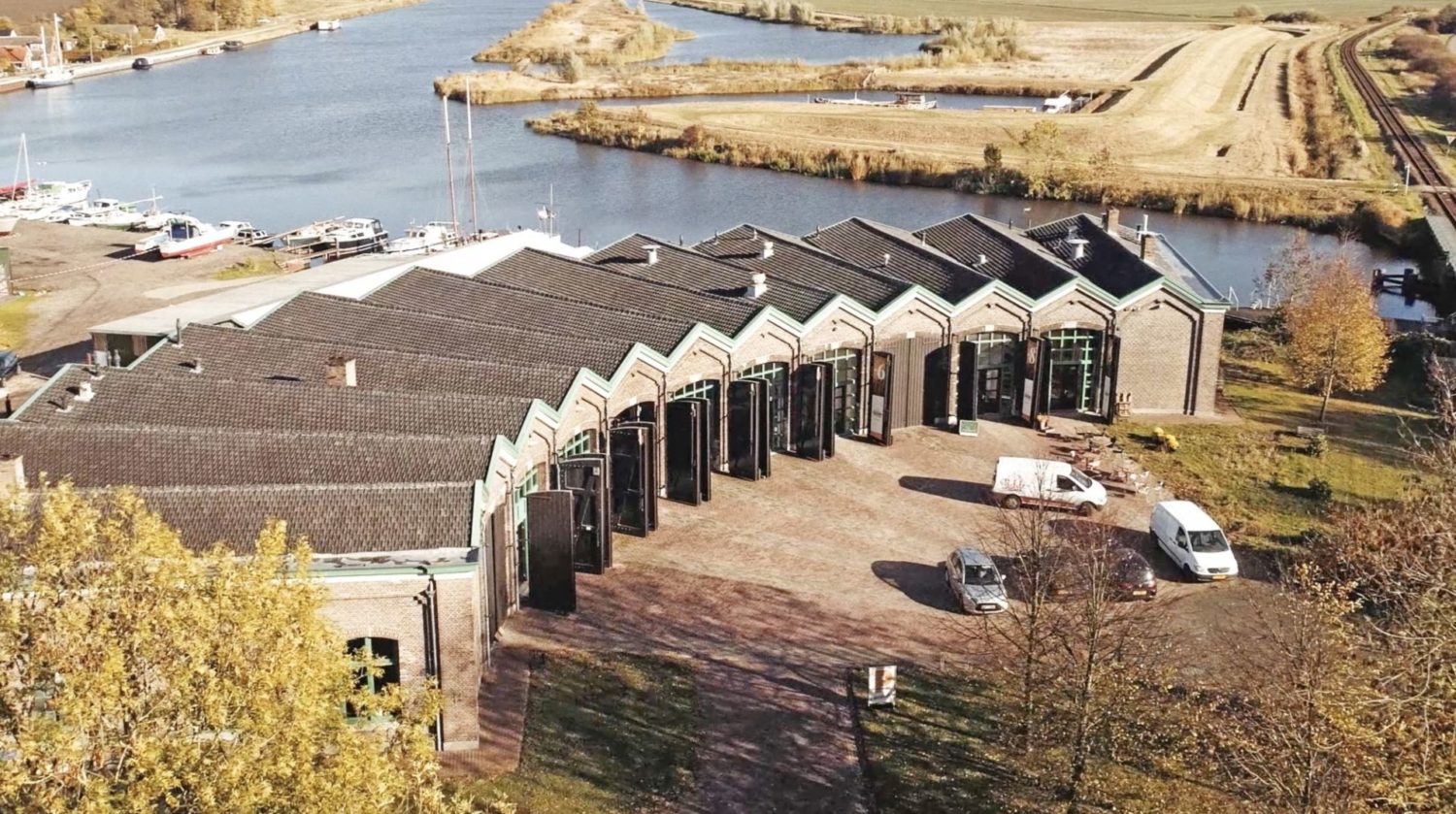Grow, brew, experience, learn, innovate, sell, discover, teach. The Grain Republic is it all; the plans are grand. And yet it all revolves around one thing: Groningen grain.
End of this year. That's when the completely remodeled Old Remise, the center of the Grain Republic, is expected to be open. It will be an experience center, as well as a production location, an educational venue, an innovation hotspot and a sales outlet. This is where what cooperative The Grain Republic invents and makes comes together, also in other places in the North.
'Grain is the starting point of much more,' explains director Niels Grootenboer. 'If you want to summarize it, you could say that we are innovating backwards. We look at how agricultural products were created here long ago, learn from that and come up with our own version. That is also about dealing well with nature, with the soil, with the people who live here. Above all, it's about taste.
Specifically, you will soon see the baker at work with primal grains. You can also buy his products. Jenever is distilled from local grains in copper stills, and on the terrace you can order regional products grown and baked by members of the cooperative. Glass of beer from an old grain to go with it, or a glass of whiskey from an unexpected grain, vegetarian croquette for good measure.
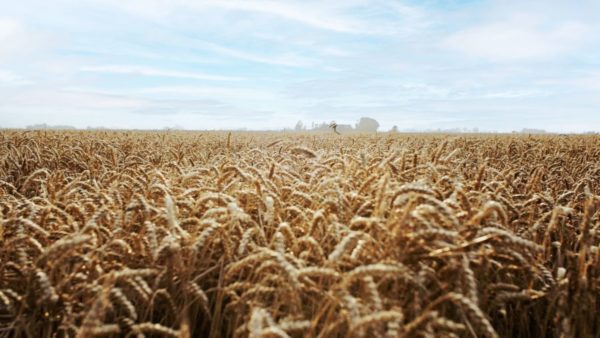
Improve food system
The building does not just produce for consumption. Innovating and teaching are important components. Grootenboer: "We retrieve grains that have not been used for decades and start investigating what beautiful products we can make with them. We do that for ourselves, but also for other companies. And students are important in this. I can see us hosting a Groningen agrifood campus here in a while. Students will learn all about food and we will also offer a place to students studying hospitality.
All under the Grain Republic vignette, which is plastered on everything that comes from the cooperative. And it will be more and more, because essentially the cooperative has only been around for a short time. It now has fifteen members, but that number may well increase. They include arable farmers, a baker, food developers, innovation experts, brewers and more. They work together, learn from each other, bring their networks and contribute knowledge. They share the same ideal: improving the food system.
That this also requires "ordinary" money to be made is logical to the cooperative. And it can be done. Indeed: it is already happening. The whisky is going faster than expected, gin is being sold, beer and soft drinks are also selling. 'We obviously have a whole business plan, in which there is earning for each of us. We will soon be open on Fridays and weekends for consumers, who come to get an experience, or just a loaf of bread of course. There will also be room for art and culture then. The other days we host groups and are busy with the making process and research.'
Marketing is essential. The Grain Republic is a label that stands for local, for primal, for organic, pure nature, innovation, social entrepreneurship, craft. And for taste. That sound is already starting to resonate nicely, says Grootenboer. We work transparently and honestly on beautiful product innovations. Companies see that too, and not the smallest. I have already signed quite a few contracts to start making new products for them. And yes, you will always see our logo somewhere on the packaging.'
Their shared penchant for taste and new things now culminates in Snackwerk. They are developing a line of responsible fry snacks. In time, these should be widely available; the first Flagship store recently opened in Cilinder, in the old Willem Lodewijk Gymnasium on Oosterstraat. One hundred percent vegan comfort food that tastes excellent with a nice cocktail.
We are reclaiming grains that have not been used for decades and will explore what beautiful products we can make with them.
Niels Grootenboer
director of the Grain Republic
Oyster mushroom kebab
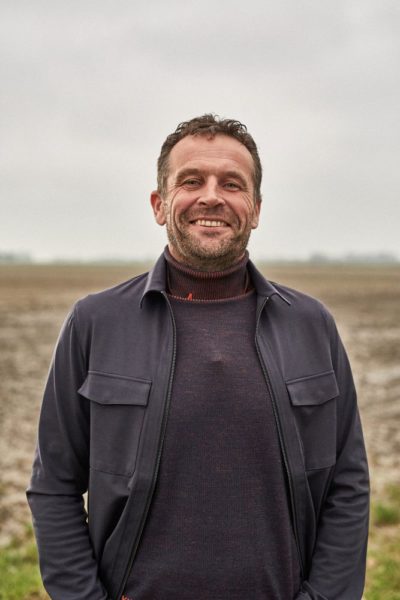
Marco Agema
'We are far along with our betterballs, the taste is getting better,' says Agema. 'They are produced entirely according to the principle of circularity. Most of the ingredients come from the neighborhood. Everything we have left over, we reuse. This is a combination of Groningen pride, responsible food and commercial traction. We are convinced that this is the way the world should go. It's just a matter of time.'
We at the Grain Republic are all working on a cool story about food, from source to plate.
Marco Agema
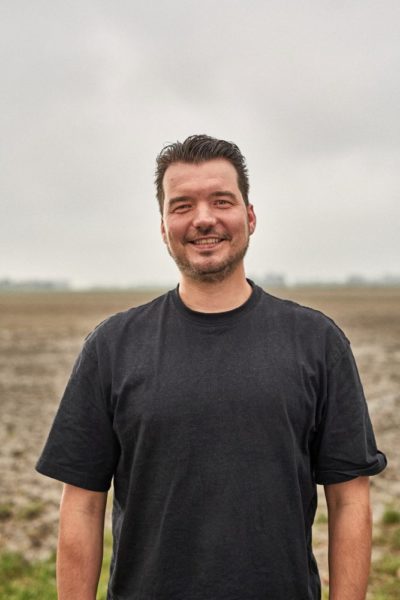
Lennart Deddens
Lennart Deddens is seasoned in hospitality marketing and sees the great promise of sustainable snacks. 'This is both logical and unique. It's really cool to think about what's possible. We're testing that, too. Oyster mushroom kebab for example. Very tasty. This can become big and I think Cylinder is a great place to tackle it well. High quality snacks combined with top cocktails, that works.'
The snacks change in taste and content with the seasons. Agema: "We use what comes from the land and so we have a direct line to the farmers, starting with the members of the cooperative. It is testing and figuring out together which crops are tasty and suitable. We give each other insight and new opportunities, on the way to making as much impact as possible. When you zoom out, you see that we apply what makes sense in reality.'
The connection between farmers and makers is inspiring.
Lennart Deddens
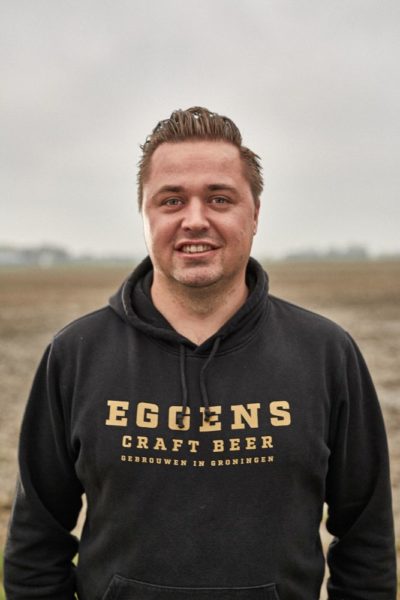
Martijn Eggens
Eggens: "I think one of the most beautiful aspects is that we bring the consumer into the whole process. We tell the story of the landscape, of the crops, of the craft. Nature and the climate are under increasing pressure and we show how it should be done.'
The flavors are completely new and unique in the beer landscape. For example, we have a beer brewed from organic spelt.
Martijn Eggens
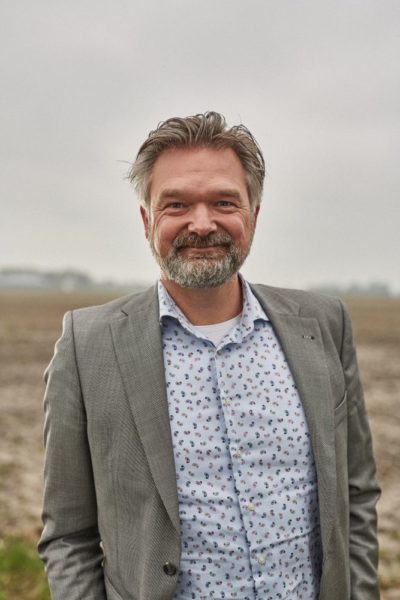
Hero Havenga The Pool
Hero Havenga de Poel: "Through the Grain Republic and collaborations like this, we contribute directly to biodiversity. People feel the landscape, taste the flavor and see the positive effects of our way of farming and producing. It would be great if we could encourage as many entrepreneurs in the food industry and agriculture as possible to also work this way.'
It could succeed because the cooperative shows that there is also 'just' money to be made. 'I see the Grain Republic as a beautiful flower. If one petal does well, the rest benefits. If something goes down somewhere, the other petals catch it. That's how a cooperative should work.'
Hero Havenga de Poel grows several of those ancient grains on his land near Kloosterburen for the beers of the Grain Republic, of which Martijn Eggens is the head brewer. 'That in itself is an interesting process. Fortunately, we have an institute in the Netherlands that has preserved seeds of ancient grains. We use those at the Grain Republic to propagate old crops again. This does take time, because you only get a handful of seeds. You see, over time productivity, ease of cultivation and nutritional value became leading and the taste aspect of grain varieties faded into the background. We want to reverse that again.'
It would be great if we could encourage as many entrepreneurs in the food industry and agriculture as possible to also proceed in this way.
Hero Havenga de Poel
Flower petals
In the innovation workshop of the Grain Republic in Bad Nieuweschans, the new flavors will soon be tested and recorded. What is currently cultivated in trial fields will, if successful, eventually be widely distributed to farmers in Groningen. Thanks to the cooperative form and the partnerships with local entrepreneurs and national players, a healthy earnings model with old grains for the farmers is anticipated.
Sustainable snacks in and out of the Grain Republic
Cooperative. Cooperation, in other words. That happens at the Grain Republic in all areas, always with taste as the connecting factor. Take Lennart Deddens and Marco Agema. They already knew each other, but thanks to the cooperation they really joined forces. Together they develop products with a story in the form of snacks.
Lennart Deddens' entrepreneurial background includes bocce bar BOEL, event and consulting firm Boilermaker and cocktail bar The Stockroom, all in Groningen. He is also an avid whisky maker and gin ambassador. 'The connection between farmers and makers is inspiring. We are currently testing eight different forgotten grains as a base for whiskey.'
Marco Agema gained fame as owner of the Groningen-based Friet van Piet, which became an example of sustainability and corporate responsibility in the sector. Five years ago, he started the Snack Bar of the Future from Eelde, an innovation platform that brings parties together to develop a healthier and more varied snack offering. 'We at the Grain Republic are all working on a cool story about food, from source to plate.'
New beers with the taste of primal grains
The Grain Republic brings flavor. Arable farmer Hero Havenga de Poel and brewer Martijn Eggens are working from this cooperative on a series of recipes for new beers based on "forgotten" grains.
The whole process in pictures. That's what attracts Martijn Eggens (Eggens craft beer) so much to the Grain Republic. 'This goes much further than buying raw materials from local farmers. Together we think out which grains might work well and set up trial fields. I like to go along on the tractor myself to sow and harvest. That way you get a completely different feel for the new beers, the new flavors.'
Eggens had been working that way with local farmers for a few years. Thanks to the Grain Republic, his method has received a new impetus. 'It's great to see old grains being given a new chance. The flavors are completely new and unique in the beer landscape. For example, we brewed a beer from organic spelt. Very spicy, very different'.
(Inter)national potential
For NOM, the Grain Republic is not an average case. Its plans are somewhat more difficult to capture in an assessment formula than those of the average startup. Nevertheless, NOM decided to provide a subordinated loan to the cooperative. And that is actually not that strange, explains investment manager Chantal Leijendekker.
More sustainable, smarter, healthier. These are the pillars that determine whether NOM will go into business with a (start-up) company or not. The first and third tap the Grain Republic effortlessly, the second in time as well. 'We approached the Grain Republic the same as we do with other companies. Looked at the financial calculations, the overall plans, the future picture. The cuddliness factor is obviously great, but it also just has to pay off.'
The loan from NOM is more than welcome. It will pay for the major renovation, the implementation of the hefty marketing plans and the investments in the 'laboratory' for food innovation. And - not unimportantly - the NOM funding is reason for Rabobank to enter into the adventure as well.
Chantal Leijendekker: "That's how it often goes. We provide venture capital, regularly in the early phase of a startup. We do that if we have looked at it closely and have confidence in it. That certainly applies to the Grain Republic. This formula is very nice and we think it has national potential. Maybe even international.
Answer 4 simple questions to quickly find out if you may qualify for funding through NOM.
